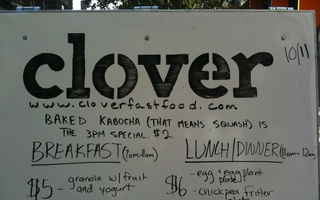Lint outlined the manifold varieties of licenses available and the restrictions that they entail.
“You can have just wine and malt, you can have all alcohol,” Lint said. “There are some that are just breweries, like Cambridge Brewing Company, and then the hours are different, the days of the week might be different.”
According to Lint, the most expensive licenses can cost around $6,000. Restaurants are often willing to pay the extra sum because the more expensive license comes with greater freedom to sell what they want, when they want to.
Lint estimated that the process for issuing a new license could take anywhere from four to ten weeks, depending on whether there are issues with state compliance.
Although owners reported a variety of experiences regarding the licensing application, most noted that obtaining a liquor license can make or break an establishment—particularly in Harvard Square.
CERTIFICATE FOR SURVIVAL
According to Sahagun, when Cancun Taqueria opened its doors in October 2013, it became immediately apparent that a liquor license would be required for the business to turn a profit.
He recounted how customers constantly asked whether the restaurant served trademark Mexican drinks, such as margaritas, before Cancun Taqueria acquired its license.
“It’s very important, especially in the area,” Sahagun said. “People want to have Mexican food with a drink. If we didn't [serve alcohol], they would just not come, and that’s one of the problems we ran into.”
After acquiring a liquor license about a month ago, business at the Taqueria improved dramatically, Sahagun said.
Many other Cambridge establishment owners offered similar perspectives, highlighting the importance of a liquor license.
Dan B. Hogan, executive director at the folk music venue Club Passim, noted that although he had no difficulty obtaining a special non-profit liquor license, the permit has proved critical to his business. According to Hogan, beer and wine sales account for almost 100 percent of its surplus revenue.
For restaurants, the necessity of a liquor license is even more acute.
Jen Fields, the general manager at Alden & Harlow, said that it is easier to make money from alcohol sales than from food. She noted that the perishability of food was one reason why alcohol generally produces wider profit margins.
Kari Kuelzer, the co-owner and general manager of Grendel’s Den, also highlighted how restaurants need licenses to make a profit.
Recommended Articles
-
Bus Service Struggles for Harvard-N.Y. LineDetermined to establish a direct bus line between Harvard Square and New York City by mid-November, a transportation service company that currently runs bus routes throughout the northeast is still facing one important barrier: the city of Cambridge.
-
Tavern to Open in Former Z SquareThe 14 JFK St. space that previously housed Z Square has remained conspicuously empty for more than eight months since ...
-
Boston Questions Pizzeria LicenseStone Hearth Pizza Co. may have received approval for a beer and wine license to which it was not entitled.
-
Allston Pizzeria Wins Beer and Wine LicenseAfter a protracted and controversial process, Stone Hearth Pizza Co. received approval yesterday to proceed to the next round in its application for a beer and wine license.
-
 Hong Kong, Popular Harvard Square Joint, Approved for Longer Hours
Hong Kong, Popular Harvard Square Joint, Approved for Longer Hours -
 Clover Now Open Until Midnight
Clover Now Open Until Midnight













